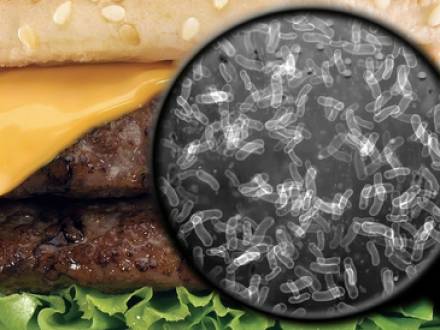
312-981-0409
161 N. Clark Street, Suite 1700, Chicago, IL 60601
Serving Clients Across 7 Illinois Locations
September is National Food Safety Education Month
 According to the Centers for Disease Control and Prevention, 48 million people in the U.S. get sick from foodborne diseases every year. 128,000 of those people are admitted to hospitals, with 3,000 losing their lives. This serves as a stark reminder that food poisoning is a serious problem.
According to the Centers for Disease Control and Prevention, 48 million people in the U.S. get sick from foodborne diseases every year. 128,000 of those people are admitted to hospitals, with 3,000 losing their lives. This serves as a stark reminder that food poisoning is a serious problem.
As part of a campaign to prevent food poisoning, the Illinois Department of Public Health recently issued a statement to remind you of basic precautions that can help avoid unnecessary risks. If you become ill due to food poisoning, the lawyers at Newland & Newland, LLP have extensive knowledge and experience helping victims recover compensation. Call today for your free consultation so we can discuss your case and explain how we can help.
The Unfortunate Effects of Food Poisoning
There are 31 known pathogens that can cause foodborne illnesses. Norovirus, salmonella, clostridium perfringens, campylobacter, and staphylococcus aureus are responsible for 91 percent of the nation’s annual tally of foodborne sicknesses. Other dangerous pathogens include E. coli, listeria, hepatitis A, shigella, cryptosporidium, and botulism. Frequently experienced symptoms include:
-
Fever
-
Lack of appetite
-
Diarrhea
-
Nausea, stomach cramps, and vomiting
-
Dehydration
These issues can last for several days, requiring you to miss work. For some people, allergic reactions to food ingredients can also cause sickness, hospitalization, and death.
Basic Food Handling Safety Guidelines
Whether you own a restaurant, are hosting a football-watching party, or are cooking for your family, following these four guidelines reduces the risks of food poisoning.
Cleaning
Anything that touches your food needs to be clean. That includes your hands, cooking utensils, preparation surfaces, and cutting boards. Foods like fresh vegetables and fruits should be rinsed thoroughly before eating them.
If you are serving people with food allergies, cross-contaminated utensils may lead to severe allergic reactions, so be sure to wash them thoroughly.
Separating
Germs and bacteria can spread. Uncooked seafood, meat, and poultry should be kept away from other foods to avoid cross-contamination.
Cooking
When preparing meats and other foods, use a food thermometer to check the internal temperature. You cannot kill bacteria if you stop cooking foods before you reach the minimum safe temperature.
Chilling
While some shelf-stable foods do not require refrigeration, others must stay refrigerated or frozen to keep bacteria from growing. Food that is at room temperature for two hours or in over 90-degree temperatures for one hour should not be eaten.
A Reminder About Food Allergies
Allergic reactions can be deadly. There are nine major food allergens, including eggs, milk, crustacean shellfish, fish, peanuts, tree nuts, soybeans, wheat, and sesame. If you have guests, ask if they have any food allergies to avoid making them ill.
Call Our Chicago, IL Food Poisoning Lawyers Today
If you are a victim of food poisoning, get medical help. Then, contact 312-981-0409 so we can investigate your illness and determine how we can help. Call us at 312-981-0409 for your free consultation with our skilled Libertyville, IL food allergy attorneys.
-

Foreclosure and Bankruptcy
Visit Website -

Real Estate and Estate Planning
Visit Website -

Personal Injury
Visit Website

 Spanish
Spanish










